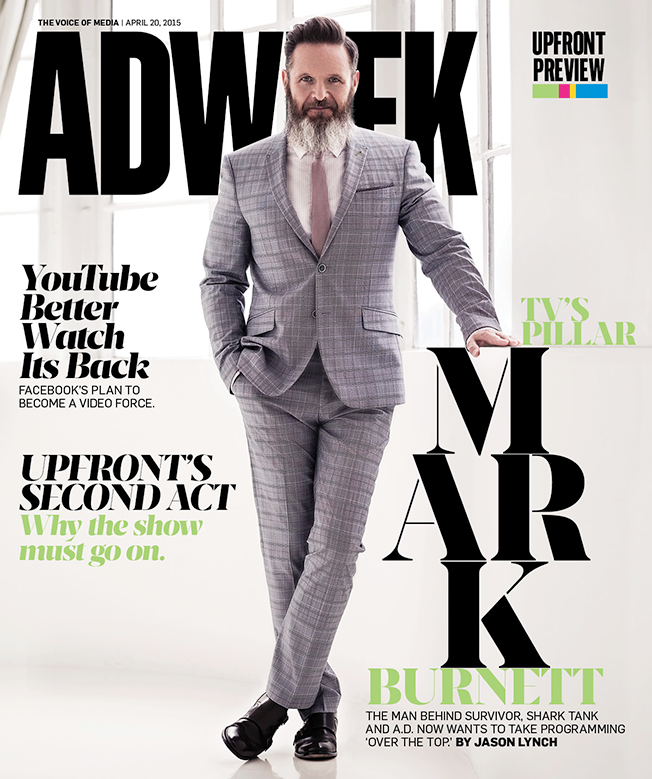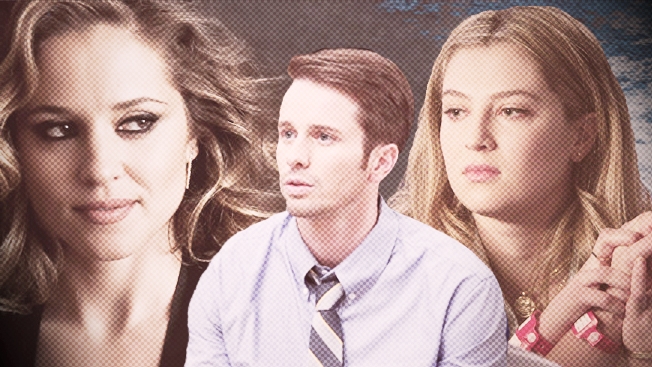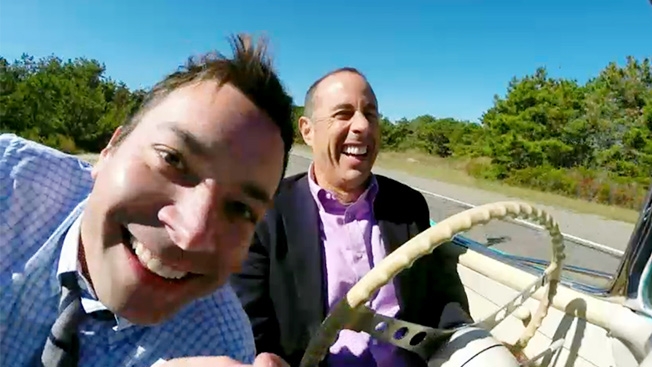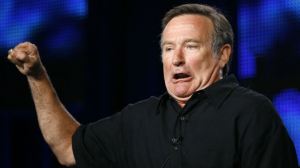I don’t start at Adweek until Monday, but in the interim I’m back in this week’s issue with my second cover story: an interview with Mark Burnett, TV’s most powerful producer, who is responsible for Survivor, The Voice, Shark Tank, Celebrity Apprentice, A.D. The Bible Continues and many, many more shows. As the British Burnett points out to me, “there’s two things that built America: the Bible and free enterprise. And now I do both. I do A.D. and I do Shark Tank.”
He also knows what viewers want to watch. In the past month alone, his shows have won the night in adults 18-49 (the most important demo for advertisers) on Sunday (A.D.), Monday (The Voice), Tuesday (The Voice), Wednesday (Survivor) and Friday (Shark Tank) — that’s five nights and three different networks.
I’d previously spoken with Burnett for my Parade cover story on Shark Tank, but this time around we talked about all of his shows, his upfront memories (he was on the cover of Adweek’s upfront issue, after all), his surprising OTT plans for his own version of Netflix and the career path not (yet) taken:
“If I wasn’t doing what I’m doing, I would honestly love to run an ad agency. I love the idea of making commercials. I love the idea of winning. Imagine if you’re clever enough to create a campaign and stuff flies off the shelves. That’s why I love The Apprentice. I’d love to be more in the advertising business.”
With more than a dozen shows under his domain, plus movies like next year’s big Ben-Hur reboot, how does Burnett stay focused on a single project when so many others demand his attention?
“It’s not always easy to do, but the correct way to approach everything is like we’re sitting here right now: This is it. So whatever I’m working on is where my focus is. And I can work on three things in a day, but when I’m there, I’m there. The definition of a loser is someone who takes a nap and then feels guilty about it. Do what you’re doing. If you’re going to take a nap, take a nap. If you’re going to work, work.”
And yes, we also talk about that epic beard of his. It was a fantastic, illuminating interview, so I hope you read the rest of it.
How the Reality TV King Created 11 Popular Shows and Counting






